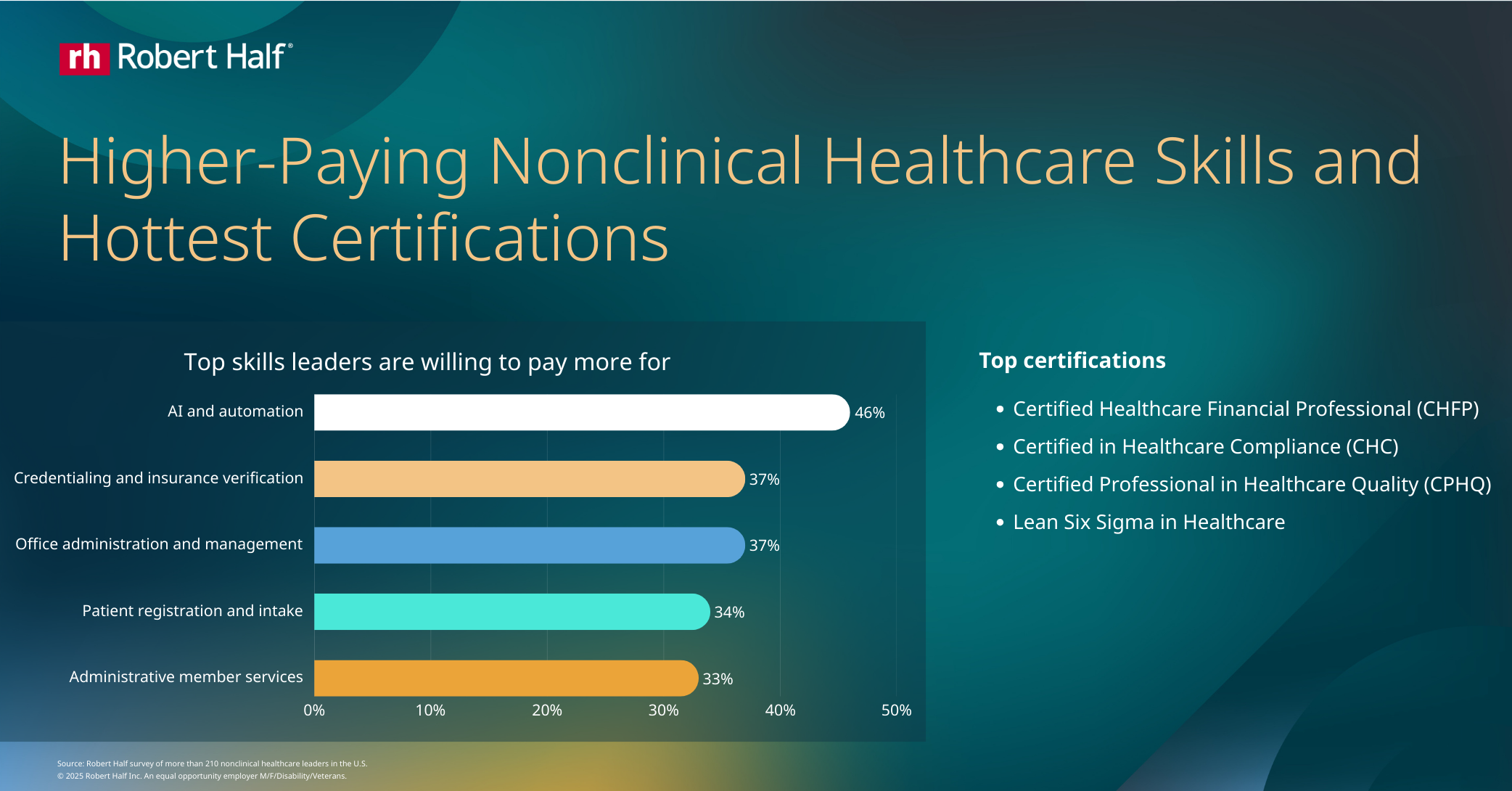Opportunities ahead in nonclinical healthcare
Opportunities in nonclinical healthcare careers remain strong for 2026. Salary growth is moderate, but demand for those combining service excellence and digital skills continues to rise.
For employers, success will come from investing in the tools and training that help teams master automation, compliance and workflow optimization. Streamlining hiring processes and supporting professional growth will also be key to attracting top performers.
For professionals, now is the time to strengthen communication, technical and administrative skills, pursue certifications that enhance credibility and stay open to emerging technologies that improve patient care and operational efficiency.
Adaptability will define success in 2026. Professionals who stay open to learning new tools and improving patient experiences will continue to grow, while employers that promote flexibility and skill development will be ready to adapt as healthcare operations continue to evolve.









